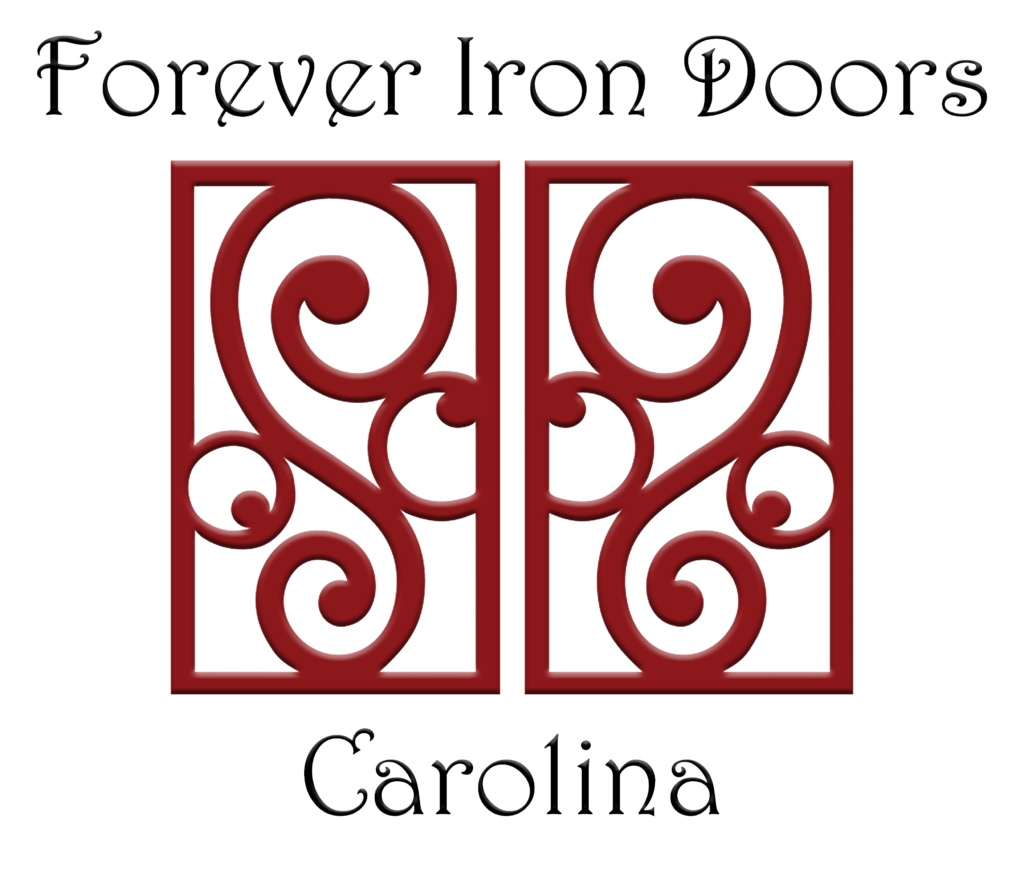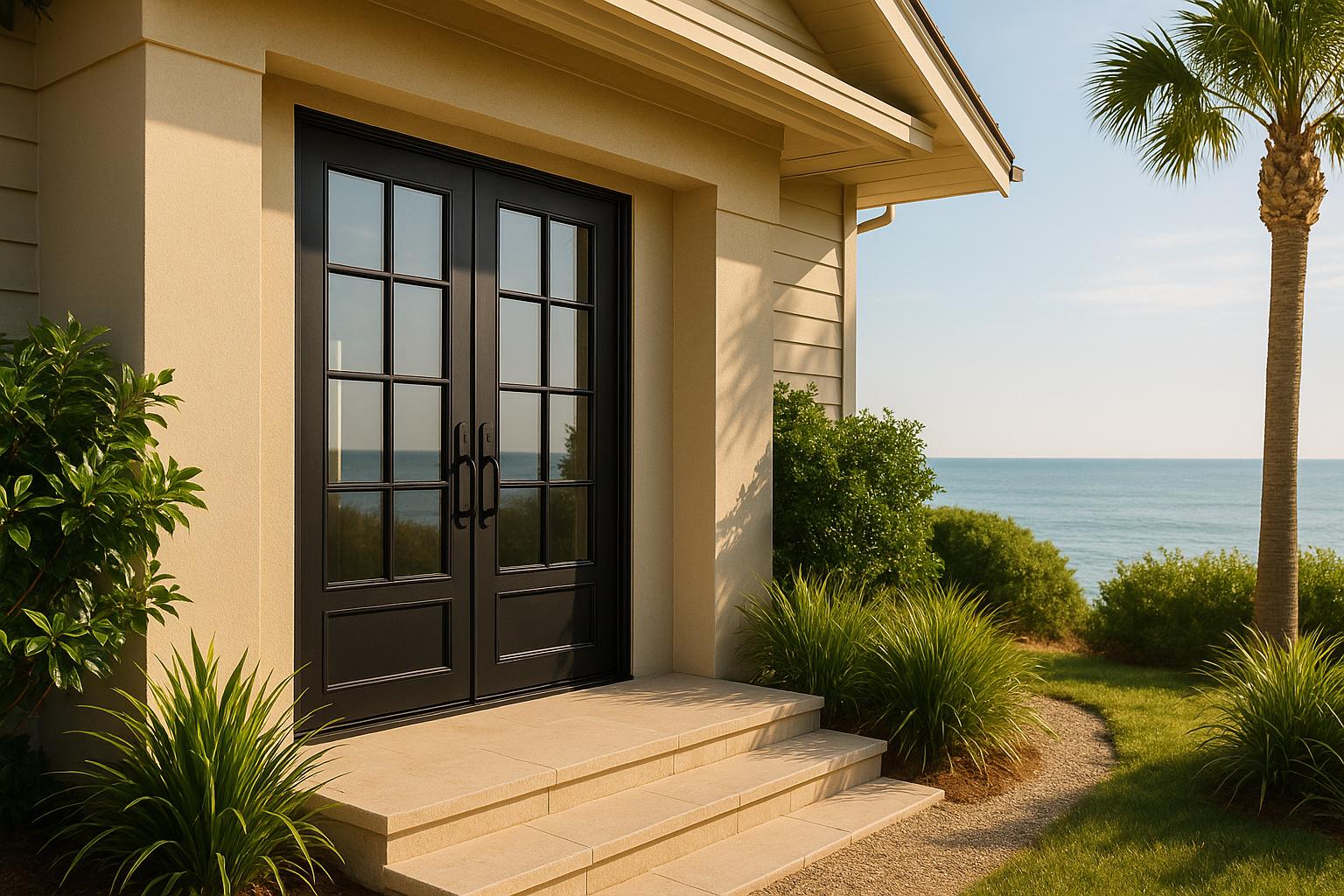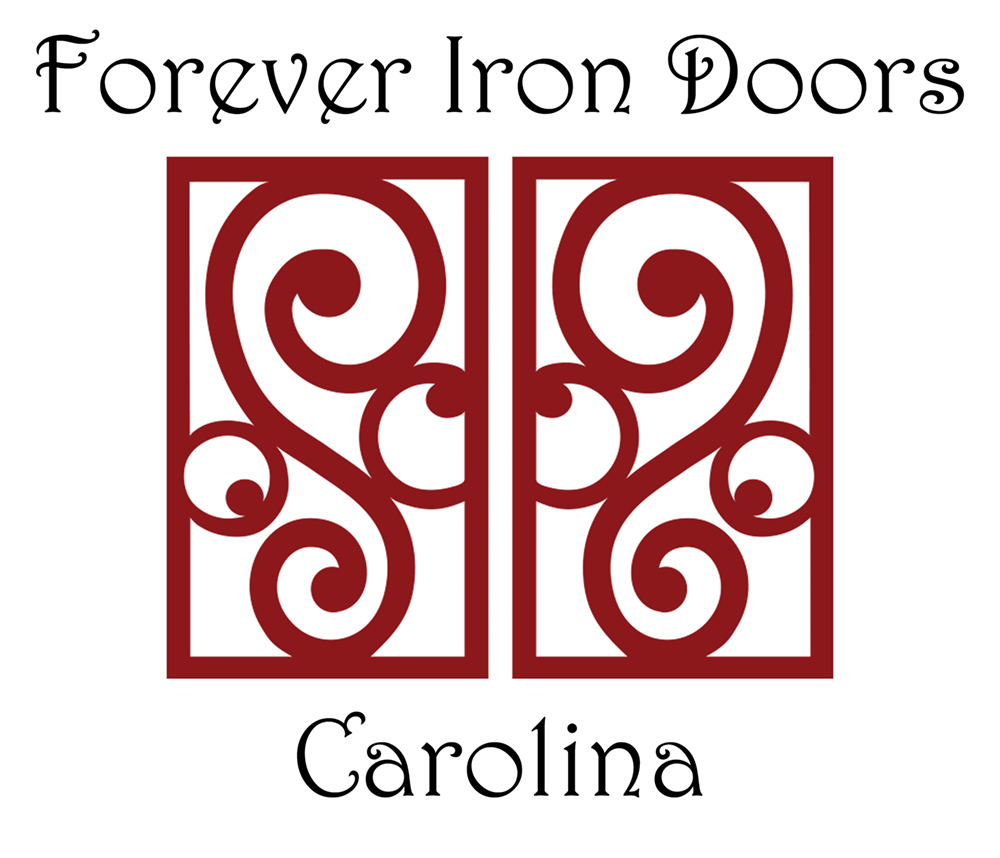Living near the coast has its perks, but if you own an iron door, salty air can be a real problem. Salt particles stick to the surface, speeding up rust and corrosion, especially when combined with high humidity. Over time, this can damage the door’s finish, weaken its structure, and require frequent maintenance.
Here’s how to protect your iron door:
- Choose corrosion-resistant materials like galvanized steel, weathering steel, or stainless steel (Grade 316 is best for salt resistance).
- Apply protective finishes such as powder coating or multi-layer systems to shield the metal.
- Clean regularly to remove salt deposits using mild soap and water.
- Inspect for damage like scratches or rust, and repair them quickly with rust-inhibiting primers and paint.
- Lubricate hinges and moving parts to prevent seizing caused by salt and humidity.
- Install professionally with proper sealing, drainage, and weatherproofing to block moisture.
Investing in high-quality materials, proper finishes, and routine care can extend the life of your door by decades, keeping it functional and looking great despite the coastal challenges.
Problems Salt Air Causes for Iron Doors
Salt air can create a host of challenges for iron doors, going beyond just surface rust. These issues include faster corrosion, damage to protective finishes, and the need for more frequent maintenance. Understanding these problems early can help you take action to keep your door in good condition.
Rust and Corrosion
Corrosion is the most damaging effect of salt air. Salt acts as an electrolyte, speeding up the process of rust by helping moisture transfer electrons between iron and oxygen. Research from the 1940s in North Carolina showed that iron samples corroded up to 10 times faster when placed just 80 feet from the shoreline compared to 800 feet inland. This happens because salt particles are hygroscopic, meaning they attract and hold moisture on the surface of your door. Even when it’s not raining, this moisture lingers, fueling ongoing corrosion.
Salt particles don’t just stick to the coastline, either. They’ve been detected as far as 900 miles inland, and corrosion from salt air can occur more than 50 miles away from the coast.
Surface Damage and Finish Breakdown
Salt air is tough on the protective coatings and finishes that shield iron doors. Near the coast, these finishes break down faster, leaving the metal underneath exposed to the elements. One common type of damage is pitting – small holes that allow moisture to penetrate deeper, speeding up corrosion.
Beyond pitting, salt air can also cause painted finishes to fade or develop a chalky texture, leaving the surface looking dull and worn. Even small scratches or chips in the protective coating can expose the bare metal to salt-laden moisture, making the problem worse.
Higher Maintenance Requirements
Iron doors in coastal areas need more care than those installed inland. The combination of salty air, coastal winds, and higher temperatures means you’ll need to clean and inspect them more often to remove salt deposits and catch early signs of damage. What might take months to appear on an inland door can show up in just weeks near the coast.
Regular maintenance becomes even more important when you consider that corrosion rates are highest at around 12 feet above ground level near shorelines. Staying on top of upkeep is essential to prevent lasting damage, especially for doors exposed to these tough conditions.
Selecting Iron Doors That Resist Coastal Damage
Choosing the perfect iron door for a coastal home isn’t just about aesthetics – it’s about picking materials, finishes, and installation methods that can handle the tough salt air environment. Coastal conditions demand doors built to withstand corrosion and wear, and it all starts with the right materials.
Corrosion-Resistant Materials and Alloys
Not all iron doors are created equal when it comes to durability in coastal areas. The secret lies in selecting doors crafted from corrosion-resistant alloys that include elements like aluminum, chromium, or zinc. These components form a natural shield, slowing rust and extending the door’s lifespan.
- Galvanized steel is a popular choice. Its zinc coating acts as a “sacrificial layer”, corroding first to protect the underlying iron. This process, called cathodic protection, can add decades of life to your door in salty air.
- Weathering steel, or Corten steel, is another strong option. It forms a protective rust-like layer that actually prevents further corrosion. While its rustic look isn’t for everyone, it performs exceptionally well in coastal climates and requires little upkeep once the patina sets in.
- For those who want the classic look of wrought iron with modern durability, stainless steel alloys are a great alternative. Grade 316 stainless steel, which includes molybdenum, offers superior resistance to chloride corrosion compared to other stainless options.
Protective Finishes and Coatings
After choosing a corrosion-resistant material, a protective finish is the next line of defense. Marine-grade finishes are specifically designed to combat the moisture, salt, and oxygen that speed up corrosion in coastal environments.
- Powder coating is one of the most durable options available. This electrostatic application creates a thick, uniform layer that’s baked onto the metal. Unlike traditional paint, powder coating doesn’t leave gaps where moisture can sneak in.
- Multi-layer coating systems provide even greater protection. These systems typically include a zinc-rich primer for strong adhesion, an intermediate layer, and a weather-resistant topcoat. Each layer plays a critical role in keeping rust at bay.
- Other specialized finishes, like rust-inhibiting primers and weather-resistant enamel coatings, are designed to actively prevent rust, even if the surface sustains minor damage.
These finishes act as a barrier, stopping salt-laden air from reaching the metal surface and triggering the rusting process.
Custom Design and Professional Installation
Custom-designed iron doors can include features that directly address coastal challenges. These might include drainage channels, reinforced stress points, and strategically placed hardware to reduce water buildup. Coastal doors can also be tailored with precise clearances and sealing systems to accommodate temperature-driven expansion and contraction.
Professional installation is just as important as the door itself. A poorly installed door can leave gaps for salt air and moisture to seep in, undermining even the best materials and finishes. Skilled installers focus on precision fitting, structural framing, and moisture sealing, all of which are critical for coastal environments.
For example, Forever Iron Doors Carolina specializes in coastal installations across North and South Carolina. Their custom fabrication process considers your home’s specific exposure to salt air, while their professional installation ensures that the door is properly sealed and structurally sound.
Key steps in the installation process include adding flashing and weatherproofing around the frame, incorporating effective drainage systems, and using marine-grade sealants. These details make the difference between a door that lasts for decades and one that constantly requires repairs.
Maintenance Tips for Coastal Iron Doors
Iron doors in coastal areas face unique challenges due to constant exposure to salt air and humidity. Even with high-quality materials and finishes, regular maintenance is essential to protect your door from corrosion and wear.
Regular Cleaning to Remove Salt Deposits
Salt deposits are a common culprit behind rust on iron doors. To keep your door in good shape, regular cleaning is a must, especially during periods of heavy salt air exposure. This prevents salt buildup from damaging the protective coatings and exposing the metal underneath.
Here’s how to clean your door effectively:
- Mix a mild soap solution by combining two tablespoons of dish soap with one gallon of warm water.
- Start cleaning from the top of the door, working your way down. Pay extra attention to decorative elements where salt can collect in crevices.
- Use a soft-bristled brush to gently scrub away stubborn deposits without scratching the finish.
- Rinse thoroughly with fresh water to remove soap residue. A garden hose works well, especially after windy or stormy weather.
Avoid using harsh chemicals or abrasive cleaners like bleach, ammonia, or steel wool. These can strip away the protective coatings, leaving your door vulnerable to salt air corrosion.
Inspecting and Repairing Damage
Once your door is clean, take the time to inspect it for any signs of damage. Even small scratches or chips can expose the iron to moisture, leading to rust. In humid coastal climates, rust can spread quickly, so early detection is key.
Focus on areas most prone to damage, such as:
- Joints and welds
- Hardware mounting points
- The bottom edge or threshold of the door
If you notice minor scratches or chips, act quickly. Use touch-up paint designed for metal surfaces to seal the damage. Clean the area thoroughly, let it dry, and apply a rust-inhibiting primer followed by a matching topcoat. For rust that’s already set in, sand the area lightly with fine-grit sandpaper before priming and painting. If rust has spread extensively or is bubbling under the paint, it’s time to call a professional.
Lubricating Hinges and Moving Parts
To ensure smooth operation, don’t overlook the hinges and locks. Coastal humidity and salt can cause these components to seize, but regular lubrication can prevent this while also creating a moisture-resistant barrier.
Here’s a quick guide to choosing the right lubricant:
Lubricant Type | Best For | Key Benefits | Application Frequency |
White Lithium Grease | Heavy exterior doors, high-traffic areas | Excellent water resistance, long-lasting protection | Every 3–4 months |
Silicone-Based Sprays | All door types, easy maintenance | Resists moisture, minimal residue, low dust attraction | Every 2–3 months |
Graphite Powder | Interior doors only | Dry application, easy cleanup | Every 4–6 months |
Before applying any lubricant:
- Clean the hinges thoroughly. If possible, remove the hinge pin and clean it with a wire brush or fine steel wool.
- Apply a small amount of lubricant to the pin and inside the hinge barrel.
- Reinsert the pin and move the door back and forth to distribute the lubricant evenly.
Avoid household oils like vegetable oil, which can attract dirt and become sticky. While WD-40 can help with initial cleaning, it’s not ideal for long-term lubrication as it may dry out the hinges over time. Reapply your chosen lubricant every few months – or more often if you notice squeaking or stiffness – since coastal conditions demand extra attention.
Professional Services for Coastal Homeowners
While regular upkeep can go a long way in protecting iron doors from coastal wear and tear, teaming up with seasoned professionals offers an added layer of expertise. These experts bring a deep understanding of coastal challenges and access to materials specifically designed to combat salt air damage. Their knowledge goes beyond routine care, ensuring your doors remain durable and reliable in harsh seaside climates.
Custom Fabrication and Weatherproofing
Custom fabrication is key to addressing the unique challenges of coastal living. Unlike off-the-shelf options, professionally crafted iron doors are designed to reduce salt buildup and provide enhanced protection against the corrosive effects of salt air. Every detail in the fabrication process is tailored to withstand these tough conditions.
Forever Iron Doors Carolina is a standout in this field, specializing in custom wrought iron doors built specifically for the coastal environments of North and South Carolina. They use corrosion-resistant alloys and advanced coatings to create doors that can handle the region’s salty air. Their custom approach ensures each door is not only functional but also built to last.
Proper installation is just as important as fabrication. A professional installer ensures a precise fit, structural stability, and complete sealing. This includes creating moisture barriers and drainage systems to prevent water from pooling, which can speed up corrosion.
Weatherproofing doesn’t stop at the door. Professionals also treat the surrounding frame, apply marine-grade sealants, and ensure adequate ventilation to minimize moisture buildup. These extra steps can mean the difference between a door that lasts a few years and one that serves your home for decades.
Additional Services for Appearance and Function
Professional services don’t just protect your door – they also enhance its look and functionality. Finishing options like faux painting can give your door a stylish appearance while adding another layer of defense against salt air. Finishes such as aged bronze, rust patina, or antique copper are applied with techniques that ensure durability in coastal conditions.
Forever Iron Doors Carolina offers faux painting options that go beyond basic finishes. Their techniques mimic natural aging while incorporating modern protective compounds, allowing homeowners to achieve a specific aesthetic without compromising durability.
Professionals also provide ongoing support to extend the life of your door. This includes regular inspections to catch potential problems early, refinishing when protective coatings wear down, and upgrading hardware for better functionality and weather resistance.
Expertise in coastal iron door projects also means knowing local building codes, selecting materials suited to specific microclimates, and understanding the challenges posed by varying degrees of salt air exposure. Whether your home is right on the beach or a few miles inland, professionals can tailor their services to your unique needs.
Another benefit of working with professionals is access to warranties and continued support. Quality installation and materials often come with warranties that cover both workmanship and materials, giving you peace of mind. By combining professional expertise with these guarantees, you’re making a smart investment in the longevity of your coastal iron doors.
Conclusion: Protecting Your Investment
Investing in coastal iron doors calls for thoughtful planning to tackle challenges like salt air, humidity, and temperature swings. Every design decision plays a role in ensuring these doors can withstand the harsh coastal environment.
Preventing damage is key. Opting for corrosion-resistant, high-quality doors and committing to regular maintenance is a smarter, more cost-effective strategy than dealing with repairs later. This proactive care can extend the lifespan of your doors by decades while keeping them functional and visually appealing.
Professional installation is another critical factor, especially in coastal areas. Forever Iron Doors Carolina understands the specific demands of North and South Carolina’s coastal regions. Their custom fabrication services focus on proper sealing, effective drainage, and long-lasting durability. This expertise not only ensures your doors perform well from the start but also safeguards your investment for years to come.
While premium materials and expert installation might come with a higher initial cost, they save money in the long run. With reduced upkeep, a longer lifespan, and preserved beauty, the financial benefits are clear. Plus, iron doors enhance security, elevate your home’s appearance, and boost property value.
Every decision – from the materials you choose to the quality of the installation – helps protect your investment. With the right combination of durable materials, skilled installation, and routine care, you can enjoy the timeless elegance and strength of iron doors while confidently facing the challenges of coastal living.
FAQs
What materials are best for preventing rust on iron doors in coastal environments?
For homes near the coast, marine-grade stainless steel or alloy doors containing aluminum, copper, or zinc are excellent choices because they resist rust and corrosion effectively. To guard against the damaging effects of salty air, applying protective finishes such as powder coating, epoxy, or metal sealants is crucial. These materials and coatings not only extend the door’s lifespan but also help preserve its look, even in tough coastal environments.
How often should I clean and check my wrought iron door in a coastal area?
To ensure your wrought iron door stays in great shape in coastal areas, make it a habit to clean and inspect it every two weeks. This routine helps eliminate salt buildup and reduces the risk of corrosion from the salty air.
Use a gentle soap and water mix to carefully clean the surface, and keep an eye out for rust or any signs of damage. Tackling these issues early can help preserve your door’s durability and appearance over the long term.
How can I protect wrought iron doors from salt air damage during installation in coastal areas?
To help your wrought iron doors endure the challenges of a coastal environment, start by ensuring the door frame is measured and installed with precision. A snug fit prevents moisture and salty air from creeping in, which can lead to rust. During installation, apply a marine-grade protective coating or a weatherproof sealant. This creates a strong shield against corrosion. You might also consider installing physical barriers, like wind shields, to minimize direct contact with saltwater spray.
For lasting performance, consistent upkeep is essential. Clean the doors with a mild soap solution, dry them completely, and refresh the protective coatings every 6–12 months. Following these steps will help your wrought iron doors maintain their appearance and functionality over time.
Related Blog Posts
- Glass vs Solid Iron Doors: Complete Comparison
- The Ultimate Guide to Front Door Replacement in Charleston
- What to Expect When Installing a Custom Iron Door in Charleston
- How Weather Affects Rust on Wrought Iron Doors


